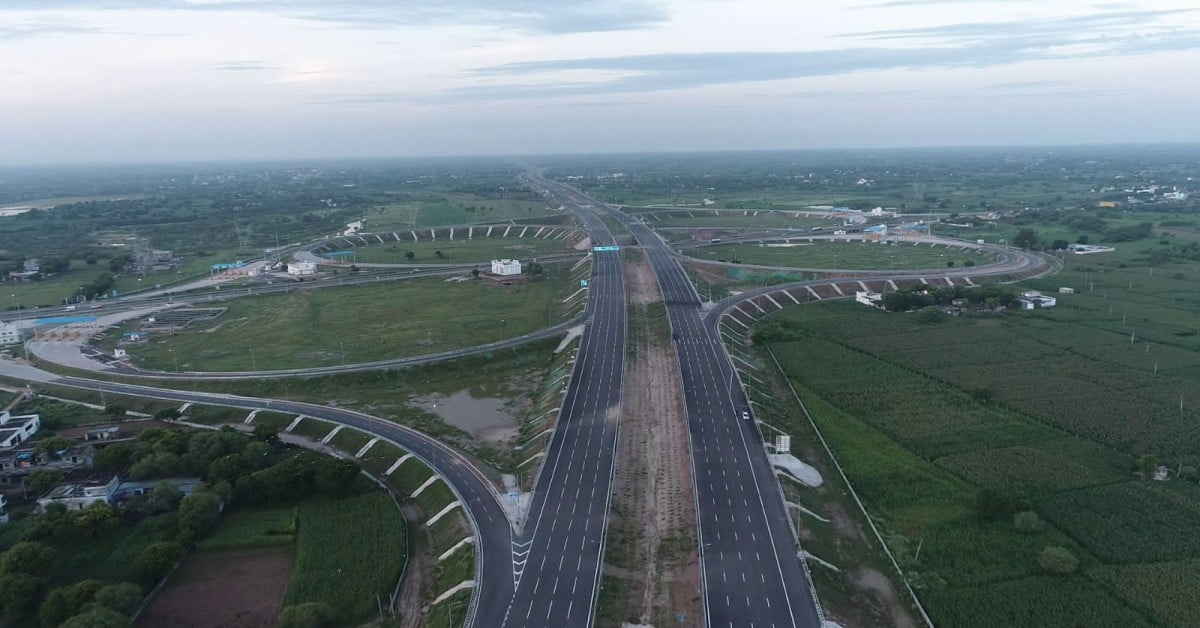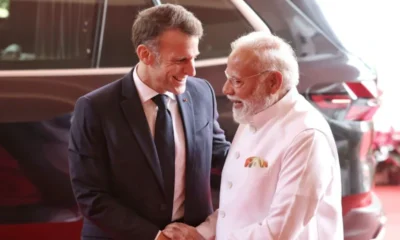Prime Minister Narendra Modi on Sunday inaugurated the first section of the much-awaited Delhi-Mumbai Expressway. The first section of the 1,386-km expressway is 246 km long. This section between Delhi-Dausa-Lalsot will ease the journey from Delhi to Jaipur. After its construction, the five-hour journey from Delhi to Jaipur will be completed in just three and a half hours.
After the completion of this expressway, the travel time from Delhi to Mumbai will also be reduced from 24 hours to just 12 hours. Apart from this, the distance between the cities falling between the expressways will also become easier.
What is the cost of Delhi-Mumbai Expressway?
The foundation stone of the Delhi-Mumbai Expressway was laid on March 9, 2019. The 246-km Delhi-Dausa-Lalsot section of the Delhi-Mumbai Expressway has been built at a cost of over Rs 12,150 crore. With the commissioning of this section, the travel time from Delhi to Jaipur will come down from 5 hours to about 3.5 hours.
Apart from this, the government has also claimed to have given a big boost to the economic development of the entire region. Talking about the entire project, the 1,386 kilometer long expressway is being developed at a cost of Rs 98,000 crore.
What’s so special about this expressway?
The Delhi-Mumbai Expressway will be the longest expressway in India. It will enhance connectivity between the national capital, Delhi and Mumbai. The expressway will connect 93 PM Gati Shakti Terminal, 13 seaports, eight major airports and eight Multi-Modal Logistics Parks (MMLPs) as well as upcoming greenfield airports like Jewar Airport, Navi Mumbai Airport and Jawaharlal Nehru Port. Will also add
Apart from this, this expressway passing through six states of Delhi, Haryana, Rajasthan, Madhya Pradesh, Gujarat and Maharashtra, will pass through economic centers like Jaipur, Kishangarh, Ajmer, Kota, Chittorgarh, Udaipur, Bhopal, Ujjain, Indore, Ahmedabad, Vadodara, Surat.
The new expressway is expected to reduce the travel time between Delhi and Mumbai from about 24 hours to 12 hours and reduce the distance by 130 km. This will lead to annual fuel savings of over 32 crore liters and reduction in carbon dioxide (CO2) emissions by 85 crore kg, which is equivalent to planting 4 crore trees. The National Highways Authority of India (NHAI) also has plans to plant more than 40 lakh trees and shrubs along the highways.
This expressway is the first in Asia and the second in the world to have an animal bridge (underpass) to facilitate unhindered movement of wildlife. It will have 3 wildlife and 5 air bridges (overpasses) with a total length of 7 km. The expressway will also include two large 8-lane tunnels. Delhi-Mumbai Expressway passes through many diverse terrains like various forests, dry land, mountains, rivers. Rigid pavement design has been adopted for the Vadodara-Mumbai section with high rainfall.
The Delhi-Vadodara-Mumbai Expressway will not only facilitate travel, but fighter planes can also be landed on it in case of emergency. This road is being developed as a road runway. Between Alipur in Sohna to Mumbai, such parts are being developed at about 55 places where fighter planes can be landed easily. There are about 10 parts in the stretch of about 296 kilometers from Alipore to Dausa, where fighter planes can be landed easily.
When will this expressway be open for public?
The National Highways Authority of India (NHAI) has not been able to complete the preparations for toll collection, that’s why even after the inauguration on Sunday, the drivers will have to wait till February 15 to start their journey via Delhi-Mumbai Expressway. According to Mudit Garg, Project Director, NHAI, the preparations are underway for the launch.























